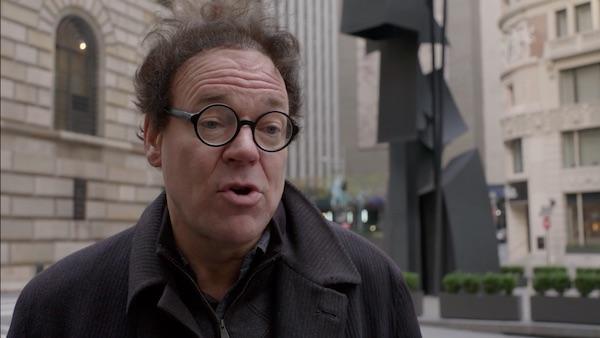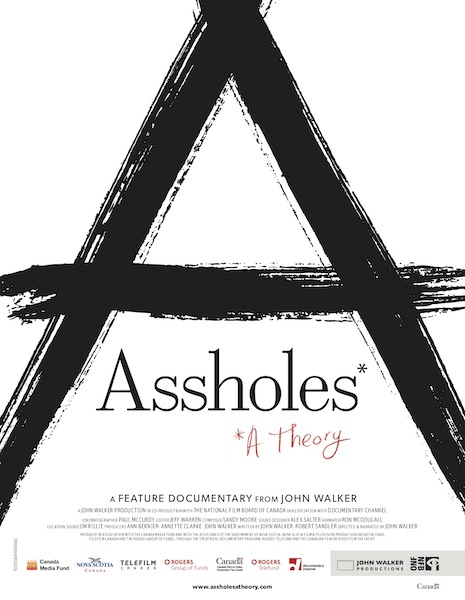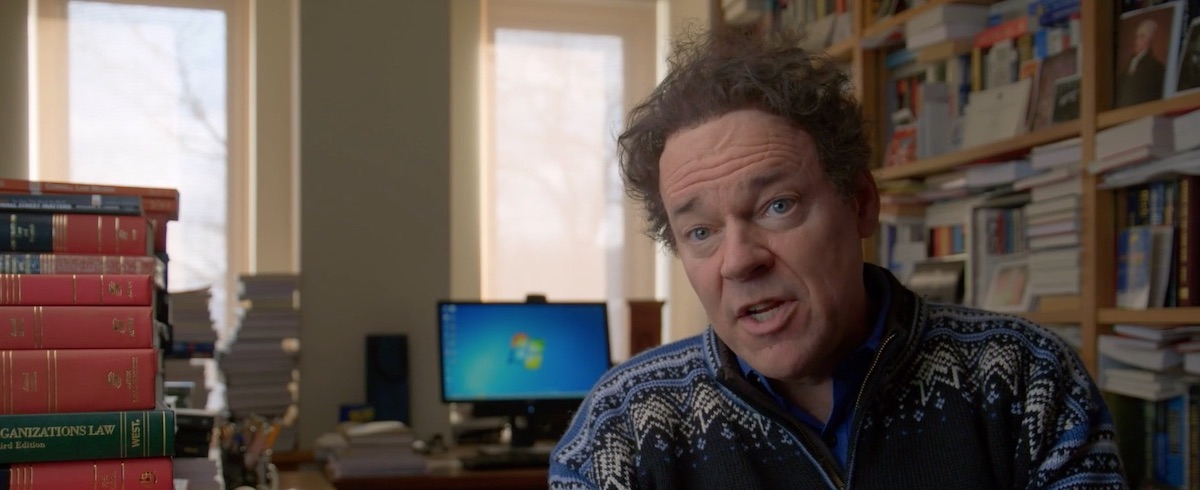Einaudi's CRADLE Tackles A*hole Problem

As a legal scholar specializing in financial services, Robert C. Hockett works on ways to keep what he calls "assholery" from subverting vital institutions, harming vulnerable people, crippling fragile economies – or worse.
By Jonathan Miller
Robert C. Hockett has spent a lot of time thinking about assholes. And not just your swerve-through-the-traffic, cut-in-line-at-the-bank type of assholes.
The co-founder of the Cornell Research Academy for Development, Law and Economics (CRADLE) defines an asshole as "somebody who thinks that he or she is special, and not subject to the same norms or rules or standards of decency or propriety or reciprocity that ordinary folk are subject to."
As a legal scholar specializing in financial services, Hockett works on ways to keep what he calls "assholery" from subverting vital institutions, harming vulnerable people, crippling fragile economies – or worse.
Appearing in a new documentary, he connects the failure of the Federal Reserve Bank to rein in assholery on Wall Street to the Great Depression, the rise of the Nazis, the Second World War, the Holocaust and the 2008 financial crisis.
Hockett, the Edward Cornell Professor of Law at Cornell Law School, is one of several Cornellians featured in “Assholes: A Theory,” directed by the Canadian filmmaker John Walker. Others include law professors Sherry F. Colb and Saule Omarova, ex-Marine Johnathan Gilmore '18 and former A.D. White Professor-at-Large and Provost’s Visiting Professor John Cleese. (Cleese, an actor and humorist, says, “I guess, in a way, my mother was an asshole.”)
The film, which had its North American premiere in May at the Hot Docs festival in Toronto, is loosely based on a 2014 book by the same name by Hockett’s friend Aaron James, a professor of philosophy at the University of California, Irvine. Several scenes were shot at Cornell, including highlights of a 2017 colloquium Hockett co-organized called “Brats, Bros, Boors and Tyrants: Asshole-Proof Governance from Firms through Industries to Polities.”
The documentary looks at bad behavior not just on Wall Street (“a quintessential asshole industry,” says Omarova) but in Hollywood, Silicon Valley, the U.S. military, the Royal Canadian Mounted Police, university fraternities and the halls of power. (Although James went on to write a book called “Assholes: A Theory of Donald Trump,” the film focuses on former Italian prime minister Silvio Berlusconi.)
The rule of law is the very opposite, the very antonym of assholery. Insofar as CRADLE is interested in the rule of law ... it’s directly concerned with the asshole problem.
Hockett says he became interested in “the asshole problem” more than a decade ago, as he looked for ways to “asshole-proof” financial institutions. He had worked at the International Monetary Fund, served as a consultant to the New York Federal Reserve Bank, and advised politicians and public officials on financial policy. In 2011, he took part in the Occupy Wall Street protests, sleeping on the street by night and working at the Federal Reserve by day.
Last year, Hockett co-founded CRADLE with Kaushik Basu, Carl Marks Professor of International Studies and former chief economist at the World Bank, in part to promote the study of policies that protect ordinary people against corruption and other self-serving behavior, particularly in developing countries.
“The rule of law is the very opposite, the very antonym, of assholery,” Hockett said in an interview from Capitol Hill, where he was meeting with members of Congress. “The rule of law basically means that nobody is specially entitled, everybody is subject to the same rules and procedures, that we’re all equals. Insofar as CRADLE is interested in the rule of law as a prerequisite for the functional development of a country, it’s directly concerned with the asshole problem.”
Unfortunately, assholery often pays dividends, at least in the short term, Hockett said. “In an environment that is inadequately regulated, it is individually rational for a firm to act unethically because it can make money by doing it,” he observed. “Even if a firm wants to act ethically, it will often not be able to do so without shooting itself in the foot, because it will be outcompeted by firms that are not acting ethically.”
This is a classic “collective action problem,” Hockett said, where players would benefit by working cooperatively but continue to behave selfishly for fear that others will, too.
“What you need is actual rules and regulations that are enforced, so if people violate these rules they get thrown in jail, or they pay fines, or they get suspended from the industry,” he said. “The irony is that in financial services, we have all that, but our regulators don’t do it.”
Supported by the Mario Einaudi Center for International Studies, CRADLE brings together academics, businesspeople, think tank experts, regulators and others. Many law schools have programs on law and economics, Hockett said, but they tend to focus on microeconomics – that is, the ways in which firms and individuals function in a legal framework.
If most people are following the rules, the rule breakers stand out.
“What we’re trying to do is to bring the macro element back into the picture, and you do that by bringing in money and finance, which are kind of the life blood of a macro economy,” he said.
Hockett said it is possible to make life harder for assholes, but he doubts they will ever disappear altogether – or that their victims will stop enabling their behavior.
“The asshole is a fascinating character,” he conceded. “If most people are following the rules, the rule breakers stand out. If we’re part of a mindless bureaucracy, if we’re thinking that our economy is not functioning well, I think some people might feel a kind of secret desire to sort of give it the finger. Backing an asshole is one way to do that.”
Jonathan Miller has reported from more than 20 countries for NPR, PBS NewsHour, the New Yorker and many other national outlets. From 2016 to 2018, he was the Einaudi Center's associate director of communication.
Additional Information
Topic
- Development, Law, and Economics


